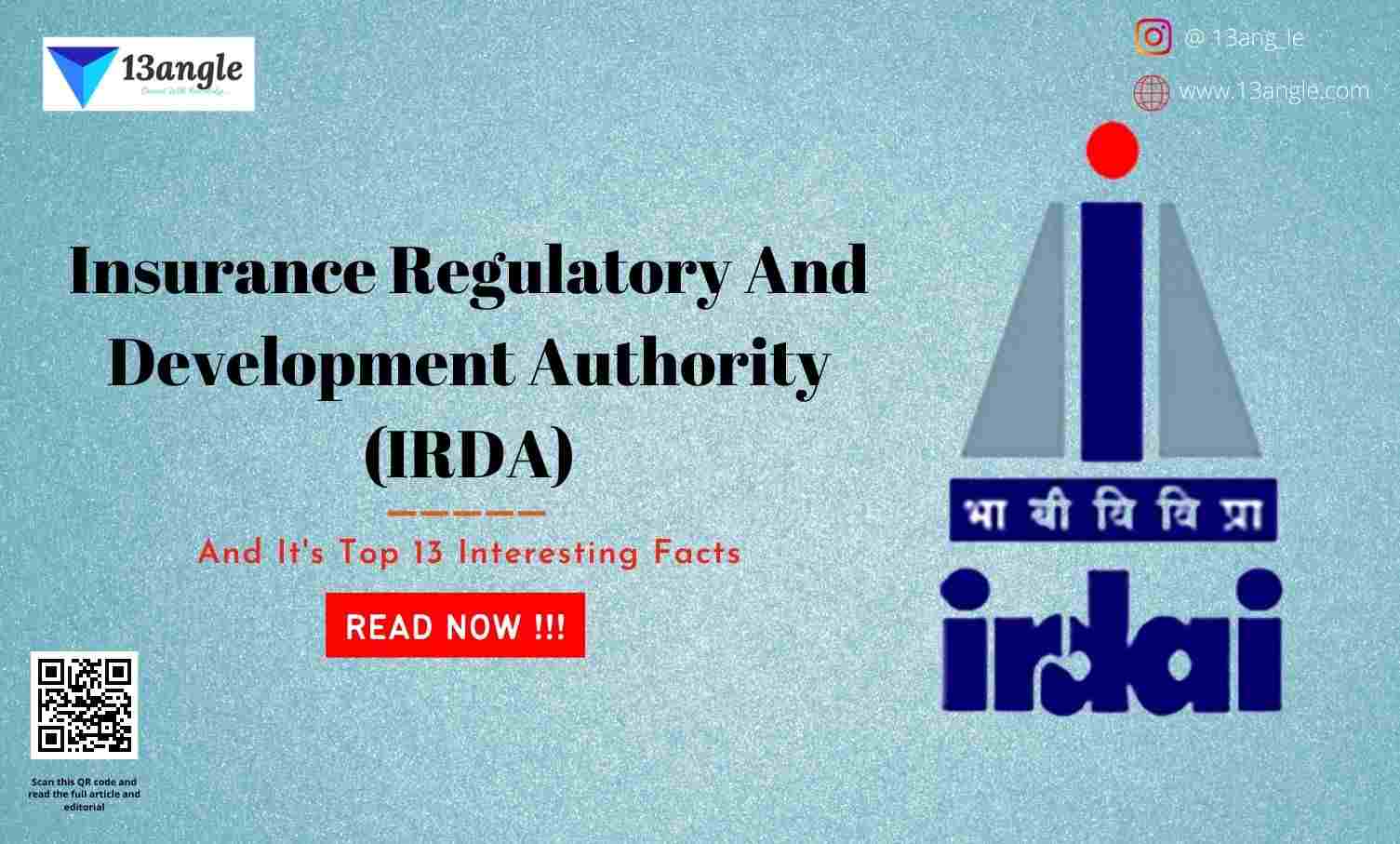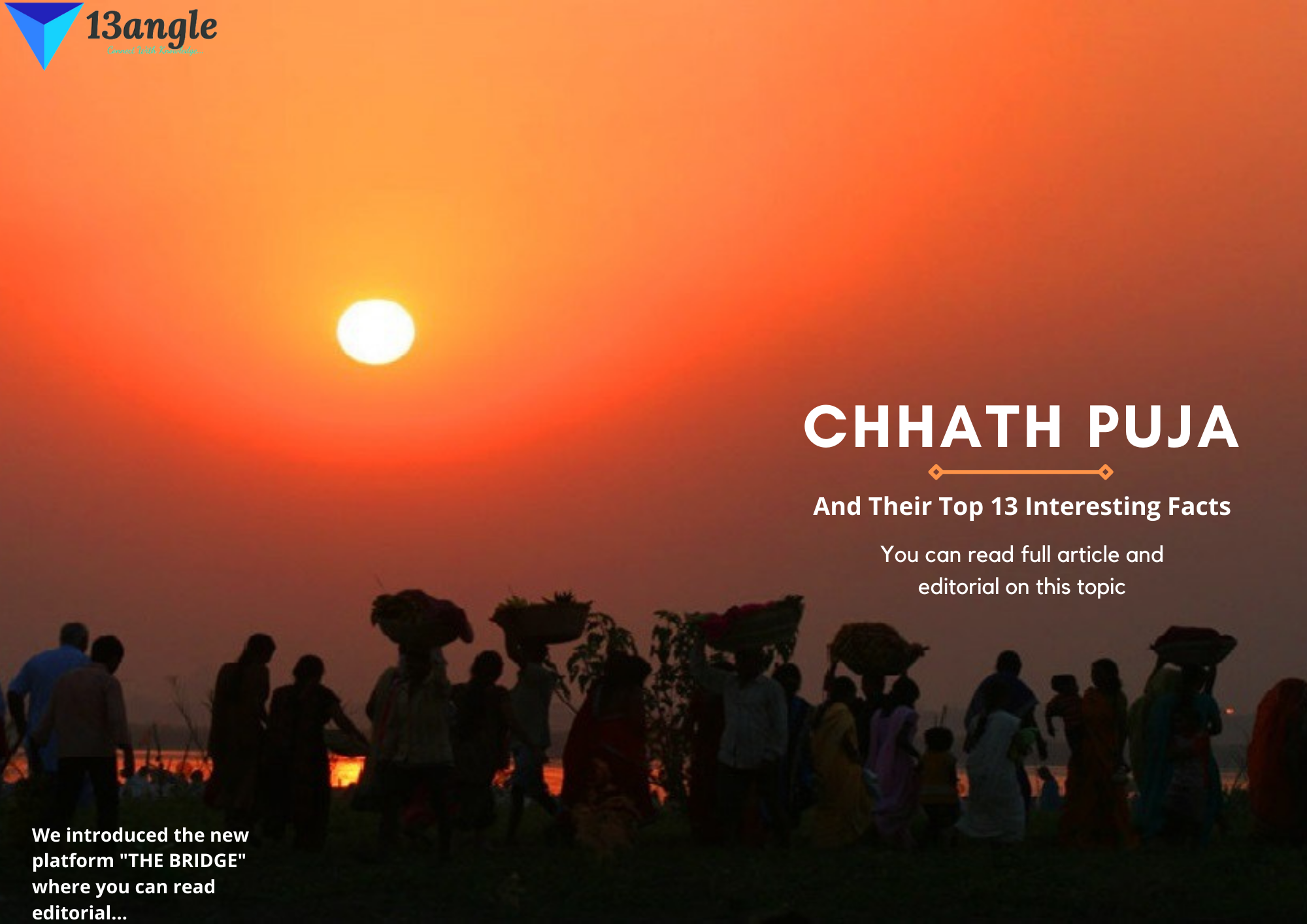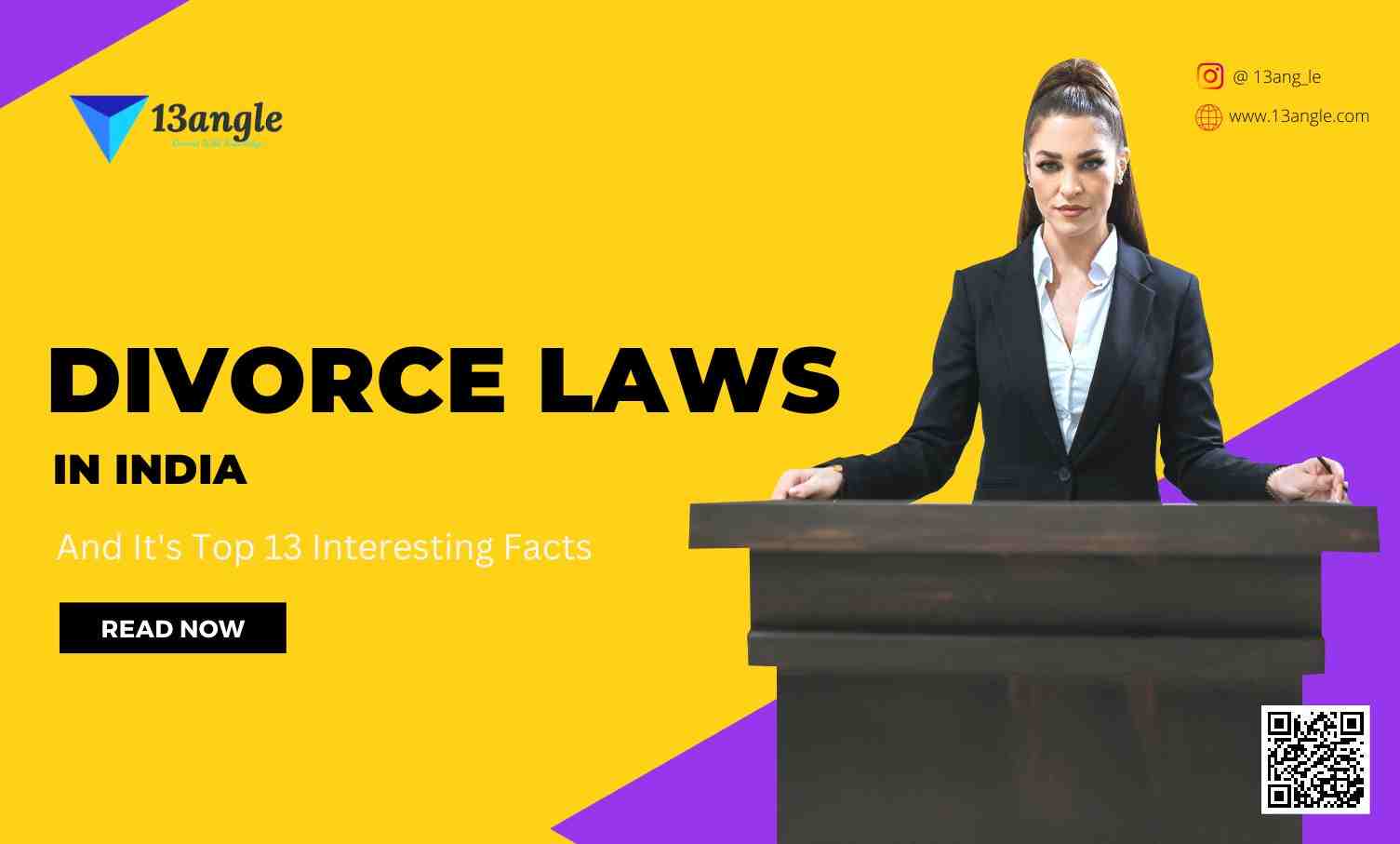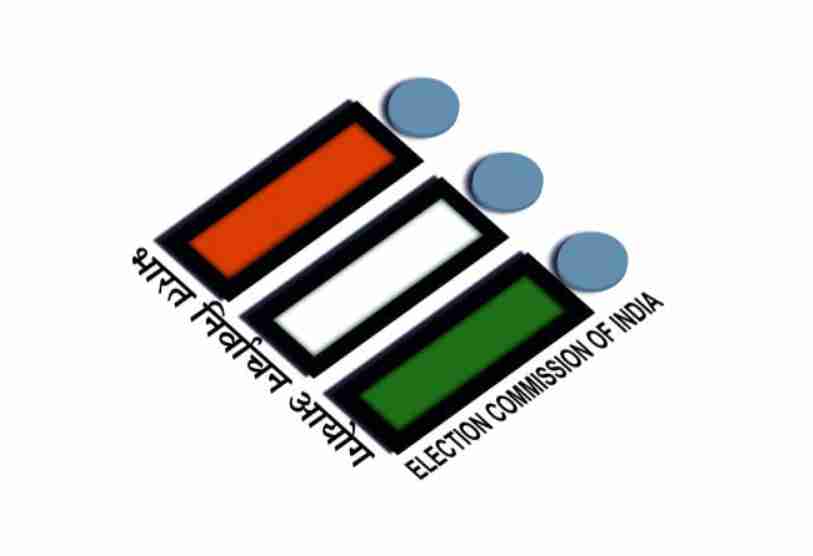
Introduction
The Election Commission of India is an autonomous constitutional authority responsible for administering Union and State election processes in India. The body administers elections to the Lok Sabha, Rajya Sabha, and State Legislative Assemblies in India, and the offices of the President and Vice President in the country. Article 324 of the Constitution provides that the power of superintendence, direction, and control of elections to parliament, state legislatures, the office of the president of India, and the office of vice-president of India shall be vested in the election commission. Thus, the Election Commission is an all-India body in the sense that it is common to both the Central government and the state governments. The Election Commission of India (ECI) is a self-governing constitutional body that oversees the election process in India as per the Constitution of India. The ECI was set up on January 25, 1950, with the aim of defining and controlling the multi-tiered election process in our country.
History Of Election Commission
India is a Socialist, Secular, Democratic Republic and the largest democracy in the World. The modern Indian nation-state came into existence on the 15th of August 1947. Since then free and fair elections have been held at regular intervals as per the principles enshrined in the Constitution, Electoral Laws, and System.
The Constitution of India has vested in the Election Commission of India the superintendence, direction, and control of the entire process for conduct of elections to Parliament and Legislature of every State and to the offices of President and Vice-President of India.
The Election Commission of India is a permanent Constitutional Body. The Election Commission was established in accordance with the Constitution on 25th January 1950. The Commission celebrated its Golden Jubilee in 2001.
Originally the commission had only a Chief Election Commissioner. It currently consists of Chief Election Commissioner and two Election Commissioners.
For the first time, two additional Commissioners were appointed on 16th October 1989 but they had a very short tenure till 1st January 1990. “The Election Commissioner Amendment Act, 1989” was adopted on 1 January 1990 which turned the commission into a multi-member body: a 3-member Commission has been in operation since then and the decisions by the commission are made by a majority vote. The Chief Election Commissioner and the two Election Commissioners who are usually retired IAS officers draw salaries and allowances at par with those of the Judges of the Supreme Court of India as per the Chief Election Commissioner and other Election Commissioners (Conditions of Service) Rules, 1992.
Functions Of The Election Commission
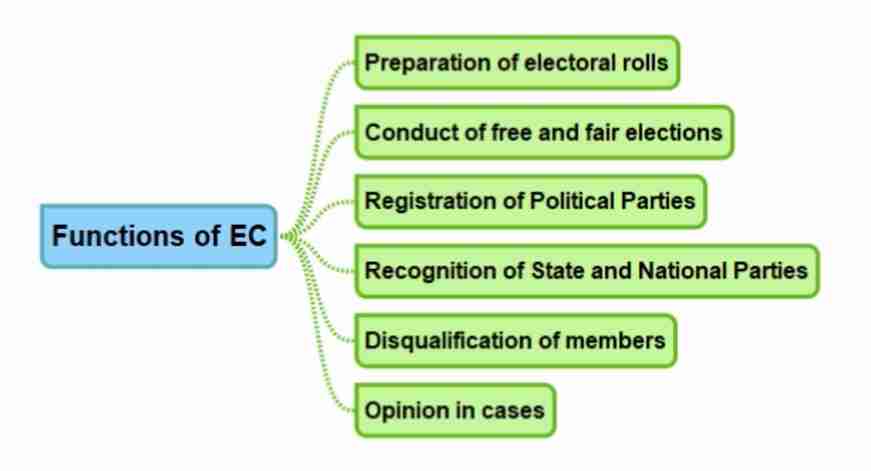
- The Election Commission of India has certain major functions to perform which are:
1. Ensuring that free and fair elections are conducted:
The major function of the Election Commission is to conduct free and fair elections whether it is the general elections or the legislative assembly elections. The lists of elections that are conducted by the election commission include:
- Lok sabha and Rajya Sabha elections
- State legislative assembly elections
- President and Vice-president elections
- Parliament and state legislature by-elections
2. Preparation of electoral rolls:
It is the responsibility of the election commission to ensure that the electoral rolls for the elections are prepared correctly. No voter who has successfully registered to vote in an election should be disallowed to do so.
3. Requisition of staff when required:
It is the duty of the Election Commission to ensure the smooth conduction of elections and if it means requisition of staff, so be it. The Election Commission can request the government to requisition staff from such as the army for proper conduction of elections and to prevent malpractices such as vote-rigging, false voting, booth jams, etc.
4. Appointing election observers:
It is also the responsibility of the election commission to appoint election observers so that free and fair elections are conducted.
5. Planning the election schedule:
It is the responsibility of the election commission to plan the election schedule and it is announced via a press conference by the chief election commissioner. After the model code of conduct is applied by the election commission in the area where the elections are being held, the prospective candidates can file for nominations.
6. The Quasi-judicial role:
The election commission performs some quasi-judicial functions such as ensuring that the model code of conduct is followed in the area/areas where the elections are being held. The Election Commission also supplies its own inputs on cases during the elections where there is some kind of malpractice involved.
7. Conducting by-elections:
The election commission is also responsible for conducting by-elections in any constituency whenever the need arises.
8. Cancellation of election:
There are certain situations in which the election commission might have to cancel polls like when the voting might be rigged or any other involvement of malpractice. If this happens, then the election commission has to order a fresh election.
9. Giving recognition to new political parties and allotting symbols:
Any new political party formed in India has to be first recognized and validated by the election commission. After it has been recognized and validated, it is allotted a symbol is assigned to it by the election commission.
10. Disqualification of candidate:
The election commission can also disqualify any candidate if the candidate has not filed his or her elections returns to the Election Commission on time. The Election Commission also provides advice to the president to potentially disqualify any MLA or MP if they are found guilty of malpractice.
11. Code of conduct:
It is the responsibility of the election commission to ensure the code of conduct is followed during the period of elections and no malpractice takes place.
12. Observation of political parties:
The election commission has to monitor the behavior and actions of political parties during elections.
13. Providing information to the media:
The election commission is required to provide regular updates to the media about the preparation of elections, polling and its conduction
Budget & Expenditure
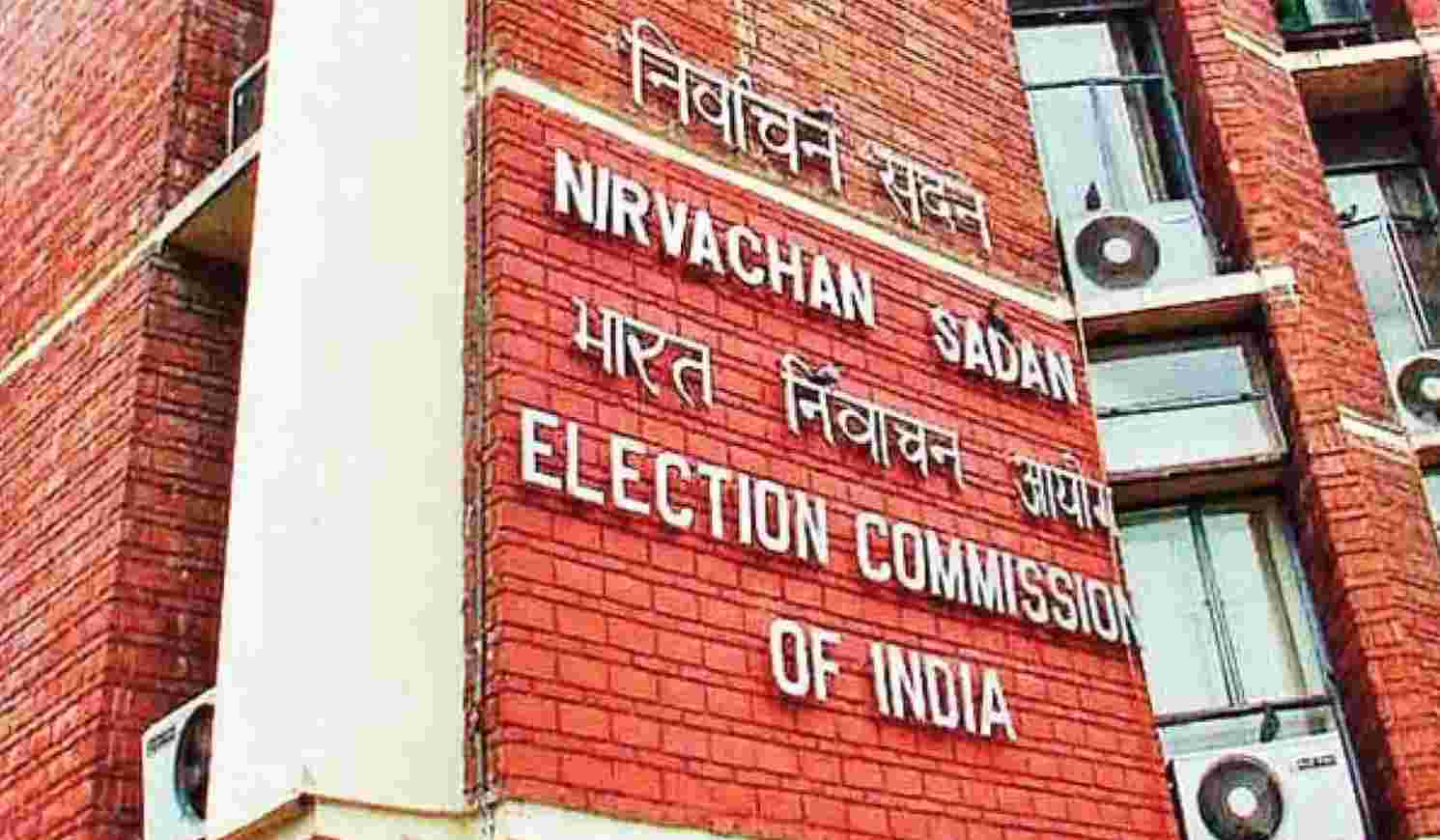
- The Secretariat of the Commission has an independent budget, which is finalized directly in consultation between the Commission and the Finance Ministry of the Union Government. The latter generally accepts the recommendations of the Commission for its budgets. The major expenditure on the actual conduct of elections is, however, reflected in the budgets of the concerned constituent units of the Union – States and Union Territories. If elections are being held only for the Parliament, the expenditure is borne entirely by the Union Government while for the elections being held only for the State Legislature, the expenditure is borne entirely by the concerned State. In case of simultaneous elections to the Parliament and State Legislature, the expenditure is shared equally between the Union and the State Governments. For Capital equipment, expenditure related to preparation for electoral rolls, and the scheme for Electors’ Identity Cards too, the expenditure is shared equally.
Judicial Review
- The decisions of the Commission can be challenged in the High Court and the Supreme Court of India by appropriate petitions. By long-standing convention and several judicial pronouncements, once the actual process of elections has started, the judiciary does not intervene in the actual conduct of the polls. Once the polls are completed and the result declared, the Commission cannot review any result on its own. This can only be reviewed through the process of an election petition, which can be filed before the High Court, in respect of elections to the Parliament and State Legislatures. In respect of elections for the offices of the President and Vice President, such petitions can only be filed before the Supreme Court.
Media Policy
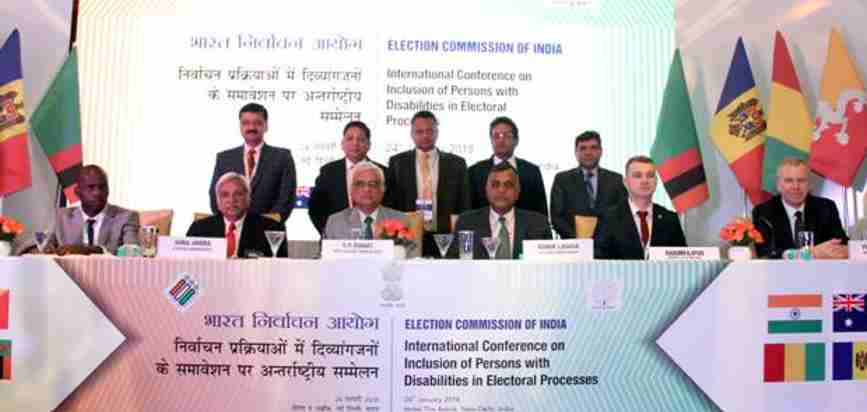
- The Commission has a comprehensive policy for the media. It holds regular briefings for the mass media-print and electronic, on a regular basis, at close intervals during the election period, and on specific occasions as necessary on other occasions. The representatives of the media are also provided facilities to report on the actual conduct of polls and counting. They are allowed entry into polling stations and counting centers on the basis of authority letters issued by the Commission. They include members of both international and national media. The Commission also publishes statistical reports and other documents which are available in the public domain. The library of the Commission is available for research and study to members of the academic fraternity; media representatives and anybody else interested.
International Co-operation
- India is a founding member of the International Institute for Democracy and Electoral Assistance (IDEA), Stockholm, Sweden. In the recent past, the Commission has expanded international contacts by way of sharing of experience and expertise in the areas of Electoral Management and Administration, Electoral Laws and Reforms. Election Officials from the national electoral bodies and other delegates from several countries – Russia, Sri Lanka, Nepal, Indonesia, South Africa, Bangladesh, Thailand, Nigeria, Namibia, Bhutan, Australia, the United States and Afghanistan etc. have visited the Commission for a better understanding of the Indian Electoral Process. The Commission has also provided experts and observers for elections to other countries in co-operation with the United Nations and the Commonwealth Secretariat.
Voter Id
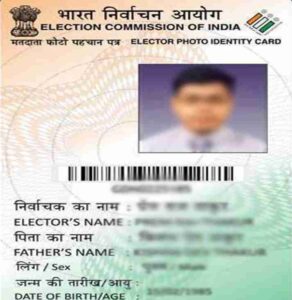
- In an effort to prevent electoral fraud, in 1993, EPICs or Electors Photo Identity Cards were issued, which became mandatory by the 2004 elections. However, ration cards have been allowed for election purposes in certain situations.
RONET
- Software mobile application developed for Election Commission of India, by 01 Synergy, which makes the voting process less cumbersome and ensures that the general public is aware of the candidates in an election. The RONET suite of web and mobile applications is for all stakeholders involved in the election process. This would help them monitor the assigned tasks at all levels for the smooth conduct of elections.
ECI360
- ECI 360 mobile application was developed for the general public — which comprises signed and sworn affidavits of the contesting candidates, a list of rejected candidates, the final list of candidates, pickup requests for voters with disability, queue status (people waiting in line to cast votes), real-time poll booth-wise polling percentage, grievance redressal, and the results. The candidate app of ECI360 allows them to request permissions for rallies and is also mapped with redressal systems, which ensures that all the issues are sorted at the earliest.
Electronic Voting Machines (EVM)
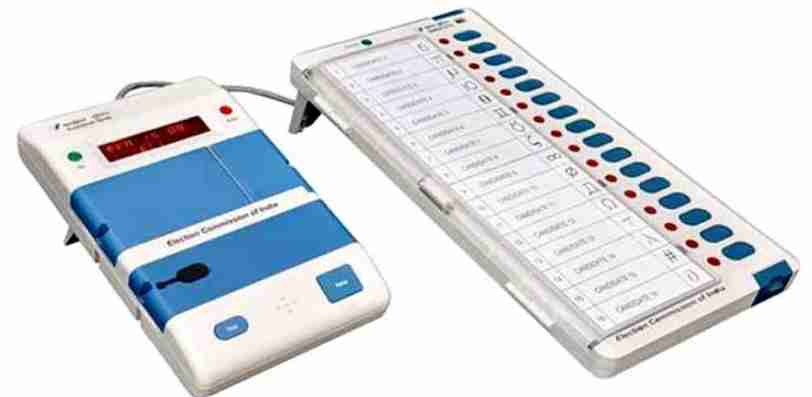
India has been the first country to adopt Electronic Voting on such a large scale. Electronic voting machines (EVM) were introduced by Election Commission in order to reduce malpractices and improve efficiency. They were tried for the first time on an experimental basis for the 1982 Kerala State Legislative Assembly Elections. After successful testing and legal inquiries, the commission took the decision to begin the use of these voting machines.
The introduction of the Voter-verified paper audit trail (VVPAT) in eight Lok Sabha constituencies in the 2014 Indian General Elections was a big achievement for the Election Commission. This Voter-verified paper audit trail (VVPAT) system was first used with EVMs in a by-poll in September 2013 in Noksen (Assembly Constituency) in Nagaland and eventually in all elections from September 2013 onwards in various Legislative elections in the country.
Postal Voting
- Postal voting in India is done only through the “Electronically Transmitted Postal Ballot Papers (ETPB)” system of the Election Commission of India, ballot papers are distributed to the registered eligible voters who return the votes by post. Postal votes are counted first before the counting of votes from the EVM. Only certain categories of people are eligible to register as postal voters. Employees working in the Union armed forces and state police as well as their spouses, and those working for the Government of India who is officially posted abroad can register for the postal vote; these are also called the “Service voters”. People in preventive detention can use a postal vote. Prisoners cannot vote at all.
Controversies Around Election Commission India Are ‘Fair’ Functioning
The Election Commission India has been caught in several controversies in the recent past over its independence and credibility as the guardian body of elections in India. In 2021, in a letter to the President, a group of retired bureaucrats and diplomats had expressed their concern over the Election Commission’s “weak-kneed conduct”. They mentioned how the institution has been “suffering from a crisis of credibility today”.
A Series of controversies were courted against the role of the ECI following the 2014 Lok Sabha elections. It all commenced when the ECI announced a staggered schedule of elections across the states. In states, including Odisha, where polls could have been conducted in two phases, the ECI announced it to be a four-phased poll.
In fact around the same time, rumors of a rift among the Election Commissioners were making rounds. According to reports, there was an apparent clash of opinion between the Chief Election Commissioner (CEC) Sunil Arora and Election Commissioner Ashok Lavasa over the issue of violations of the model poll of conduct (MCC). The situation led to some analysts believing that the MCC was nothing less than Modi’s Model of Conduct.
Later, in a report, the Citizens’ Commission on Elections stated that misused its power and the power of the Armed forces in favor of campaigns run by the Bharatiya Janata Party (BJP).
During the harrowing Covid second wave, the ECI had come under the scanner for allowing political parties to take out Assembly election rallies without adhering to Covid-19 safety protocols despite several judicial orders. In April 2021, Chief Justice Sanjib Banerjee of the Madras High Court said, “Your institution is singularly responsible for the second wave of COVID-19″. The Madras HC also noted that the Election Commission officials should be booked under murder charges too.
Organizational Chart Of Election Commission
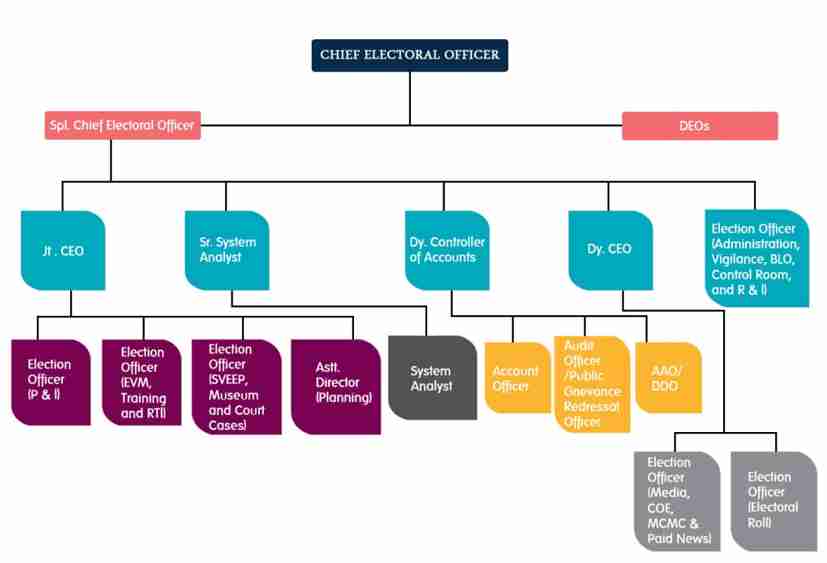
Chief Election Commissioners
1 Sukumar Sen – 21 March 1950 to 19 December 1958
2 Kalyan Sundaram – 20 December 1958 to 30 September 1967
3 S. P. Sen Verma – 1 October 1967 to 30 September 1972
4 Nagendra Singh – 1 October 1972 to 6 February 1973
5 T. Swaminathan – 7 February 1973 to 17 June 1977
6 S. L. Shakdhar – 18 June 1977 to 17 June 1982
7 R. K. Trivedi – 18 June 1982 to 31 December 1985
8 R. V. S. Peri Sastri – 1 January 1986 to 25 November 1990
9 V. S. Ramadevi – 26 November 1990 to 11 December 1990
10 T. N. Seshan – 12 December 1990 to 11 December 1996
11 M. S. Gill – 12 December 1996 to 13 June 2001
12 James Michael Lyngdoh – 14 June 2001 to 7 February 2004
13 T. S. Krishnamurthy – 8 February 2004 to 15 May 2005
14 B. B. Tandon – 16 May 2005 to 29 June 2006
15 N. Gopalaswami – 30 June 2006 to 20 April 2009
16 Navin Chawla – 21 April 2009 to 29 July 2010
17 S. Y. Quraishi – 30 July 2010 to 10 June 2012
18 V. S. Sampath – 11 June 2012 to 15 January 2015
19 Harishankar Brahma – 16 January 2015 to 18 April 2015
20 Nasim Zaidi – 19 April 2015 to 5 July 2017
21 Achal Kumar Jyoti – 6 July 2017 to 22 January 2018
22 Om Prakash Rawat – 23 January 2018 to 1 December 2018
23 Sunil Arora – 2 December 2018 to 12 April 2021
24 Sushil Chandra – 13 April 2021
Top 13 Interesting Facts About Election Commission
India has been the first country to adopt Electronic Voting at such a large scale.
Election Commission organized an open hackathon on 3 June 2017, to attempt to hack of Electronic Voting Machine used by the commission in various Indian elections. The NCP and CPI (M) were the only two parties that registered for the event but none of them participated.
Photo electoral rolls with photographs of the candidates on the EVMs were first introduced in the 2015 Bihar Legislative Assembly election.
The specific symbol for NOTA, a ballot paper with a black cross across it, was introduced on 18 September 2015. The symbol has been designed by the National Institute of Design, Ahmedabad.
The commission was established in 1950 and originally only had one Chief Election Commissioner. Two additional Commissioners were appointed to the commission for the first time on 16 October 1989, but they had a very short tenure, ending on 1 January 1990.
The commission is served by its secretariat located in New Delhi. The Election Commissioners are assisted by Deputy Election Commissioners, who are generally IAS officers.
The commission issued the Code of Conduct for the first time in 1971 for the 5th Lok Sabha elections and has revised it from time to time.
In an attempt to decriminalize politics, the Election Commission has approached the Supreme Court to put a lifetime ban on convicted politicians from contesting elections.
The Commission has, in co-operation with the state-owned media – Doordarshan and All India Radio, taken up a major campaign for the awareness of voters.
The Indian general election is easily the world’s most extensive democratic exercise in the early 21st century it encompassed roughly 700 million voters across some 7,00,000 polling stations in diverse geographic, political, and climatic environments.
Sukumar Sen (2 January 1898 – 13 May 1963) was an Indian civil servant who was the first Chief Election Commissioner of India, serving from 21 March 1950 to 19 December 1958. He is the father of elections in India.
S.Ramadevi (15 January 1934-17 April 2013) was an Indian –British Raj politician who was the first lady to become the 13th Governor of Karnataka and 9th Chief Election Commissioner of India from 26 November 1990 to 11 December 1990. She was the first woman to become Chief Election Commissioner of India.
India has the world’s second-most expensive elections after the United States. In 2014, parties and candidates spent more than $5 billion.



